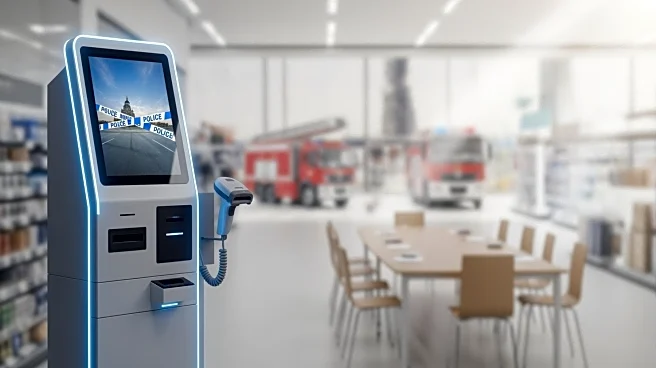What's Happening?
The Insight Partners has released a report forecasting significant growth in the global self-checkout system market, driven by retail automation and advancements in AI and machine vision technologies.
The market is expected to grow at a compound annual growth rate (CAGR) of 8.2% from 2025 to 2031. Self-checkout systems are becoming integral to modern retail, offering speed, convenience, and independence to consumers while helping retailers manage labor shortages and improve operational efficiency. The report segments the market by component, model type, end user, and geography, providing a comprehensive analysis of market dynamics and future opportunities.
Why It's Important?
The rise of self-checkout systems reflects a broader shift towards automation in retail, which is reshaping consumer shopping experiences and retail operations. These systems cater to the growing consumer demand for contactless and cashless transactions, enhancing customer satisfaction and engagement. For retailers, self-checkout systems offer a solution to labor shortages and operational cost optimization, making them a strategic investment. The integration of AI and IoT in these systems further enhances data analytics and inventory management, supporting the development of smart retail ecosystems. This trend is likely to influence retail strategies and consumer behavior significantly.
What's Next?
The future of the self-checkout system market includes AI-powered checkout solutions that improve transaction accuracy and reduce shrinkage. Retailers are expected to introduce fully automated, cashless stores, leveraging apps and facial recognition systems for purchases. Innovations such as voice and gesture control are anticipated to create more inclusive shopping experiences. Additionally, manufacturers are focusing on sustainable and energy-efficient kiosk designs to align with global sustainability goals. The market is poised for expansion, particularly in emerging regions like Asia Pacific, where urbanization and digital payment ecosystems are rapidly developing.
Beyond the Headlines
The adoption of self-checkout systems raises ethical and legal considerations, particularly regarding consumer data protection and privacy. As these systems become more integrated with AI and IoT, ensuring compliance with data protection regulations will be crucial. Moreover, the shift towards automation may impact employment in the retail sector, necessitating discussions on workforce adaptation and retraining. The long-term implications of these systems could include changes in consumer shopping habits and the evolution of retail spaces to accommodate new technologies.










